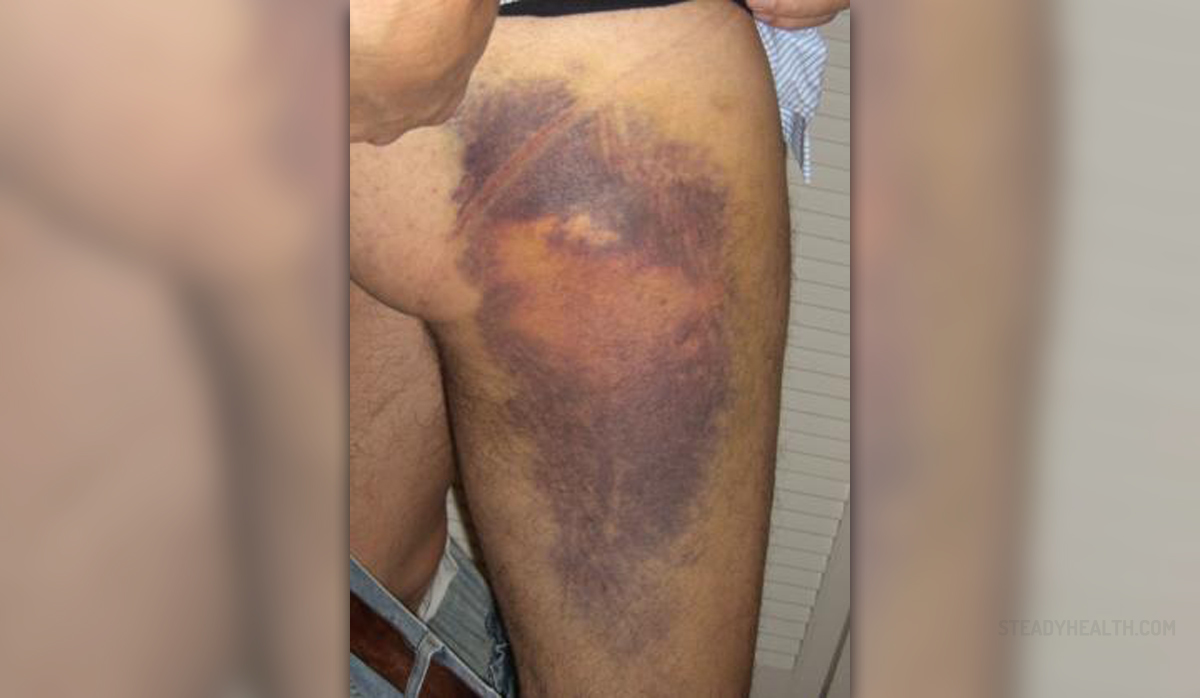
A hematoma represents extravasation of blood outside the blood vessels — basically, bleeding that collects in a pool outside of the blood vessels. This accumulation of blood is generally caused by hemorrhage. In hematoma, the blood is organized and is surrounded by different tissues. A hematoma may develop as one of the many potential complication of many surgeries. In this case, the very collection of blood accumulates in a post surgical site.
Hematoma after surgery develops several hours after a surgical procedure. It is usually a consequence of damage to the nearby blood vessels resulting from surgery, and it may be also connected to poor aftercare of the patient. Hematoma is a common side effect of certain surgeries such as episiotomy, c-section surgery, cholecystectomy, abdominoplasty, breast augmentation, facelift surgery and it may also occur after some dental surgeries.
If patients develop a hematoma after surgery, the affected area will be painful and the affected person may report a feeling of fullness while the skin changes its normal color and becomes blue or purple. In mild cases the bleeding stops spontaneously while in more severe cases a hematoma may become significantly large and compress the nearby tissues and cause lack of oxygen. The skin parts deprived of oxygen may eventually die. Furthermore, large hematomas also carry a risk of infection.
Hematoma after Surgery: What are the Causes?
In the majority of post-operative hematoma cases, the formation of hematoma after surgery is accidental. Before they close the wound (or incision site), the surgeons pay special attention to all the blood vessels and they make sure that there is no bleeding. Bleeding is successfully stopped with cauterization (a method which uses an electric current to form a blood clot). There is a possibility that a blood clot falls off which will then lead to bleeding and the subsequent formation of hematoma at the post surgical site.
One other possible cause of hematoma after surgery is the intake of certain medications, to be more precise intake of anticoagulant medications such as aspirin and heparin, which greatly increase the risk of abnormal bleeding. Be aware that even seemingly harmless things such as garlic and vitamin E can increase a person's risk of bleeding. These medications must be abstained from at least 2-3 weeks prior to the surgery since they increase risk for hematoma after surgery.
And finally, increased blood pressure as well as bleeding disorders increase a patient's risk of developing a hematoma after any surgical procedure. Blood pressure can elevate due to exercise, straining, vomiting, but also essential hypertension. This is why all the activities which may increase blood pressure are strictly forbidden immediately after any surgery.
Hematoma after Surgery: Treatment
The treatment for hematoma after surgery generally depends on its size, since hematomas can range from very small to rather large. In the case of a mild hematoma, the blood collection dissolves spontaneously within a couple of days — and this is, in fact, the most likely scenario.
In severe cases, patients who developed a hematoma after an operation may require additional surgery, as the surgical removal of the blood which is obtained with proper drainage may be needed. The blood vessels which bleed are clamped down. Pain is alleviated with analgesics and anti-inflammatory medications.

















Your thoughts on this
Loading...